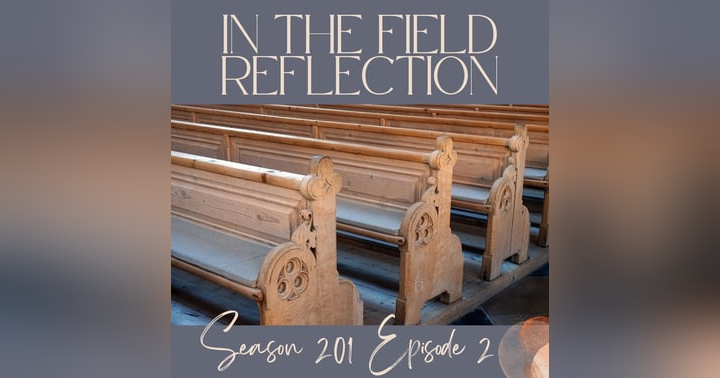Trust and Renewal from Ancient Lamentations

In our latest episode of In the Field Audio Bible, we delve into the profound reflections found within Lamentations Chapter 2. The historical context of this text is both rich and harrowing, encapsulating a period of deep mourning for Jerusalem, a once-glorious city now steeped in sorrow and desolation. The prophet Jeremiah, often called the weeping prophet, bears witness to the devastation that has befallen his people. His words echo the agony of a city that feels abandoned, leading us to explore the emotional landscape of suffering, the thirst for reconciliation with God, and the renewal from ancient lamentations.
Throughout the episode, we paint a vivid picture of Jerusalem in ruins. The contrast between its former splendor and its current state of destruction is a powerful metaphor for spiritual desolation that can occur in our own lives. Much like the inhabitants of Jerusalem grappled with a perceived separation from God, we too face moments where our faith feels fragile, especially amid trials and losses. Jeremiah’s lament serves as an invitation to examine our hearts. He articulates a grief that many of us can relate to, challenging listeners to reflect on their own experiences of abandonment, loss, and the feeling that God might be distant.
One of the core themes emerging from Lamentations is the quest for understanding amidst suffering. Jeremiah’s cries are not merely expressions of despair; they carry a yearning for God’s presence, even as he questions their relationship with the Almighty. As we navigate the chapter line by line, listeners are encouraged to contemplate what it means to trust in God, and to seek restoration when things seem utterly lost. This is not just Jeremiah’s story; it is shared by all of humanity. Have we not all found ourselves in seasons of longing for something greater while feeling the weight of our mistakes?
We also reflect on the universality of lament and the importance of expressing our sorrow. The biblical practice of lament challenges the modern notion of keeping feelings bottled up. Instead, it encourages us to bring our full selves—our pain, regrets, and hopes—into the light of God’s mercy. As the episode progresses, we remind listeners that even as we confront our own hardships, we are never abandoned by God. His faithfulness remains steadfast, guiding us through life’s valleys towards the hope of renewal.
As the episode draws to a close, we encourage listeners to find a quiet moment to connect with their own feelings of loss or heartache and to bring those before God, much like the people of Jerusalem cried for his attention. Reflection becomes a tool for growth, an opportunity to realign our trust in God’s promises. Just as the ruins of Jerusalem would one day witness restoration, we too can look forward to healing. The history of Jerusalem, as told through Jeremiah’s perspective, is a testament to the endurance of hope, even in the face of overwhelming grief.
We end our journey through Lamentations Chapter 2 with a powerful reminder: God can bring beauty from ashes, healing from brokenness, and hope from despair. Through this episode, we seek to encourage and uplift, offering a space for listeners to consider their spiritual journeys in light of God’s unwavering love. We invite you to engage with this material, share your thoughts, and explore how the lessons from Jeremiah can transform your own experiences of lament into a bittersweet journey toward hope.

















